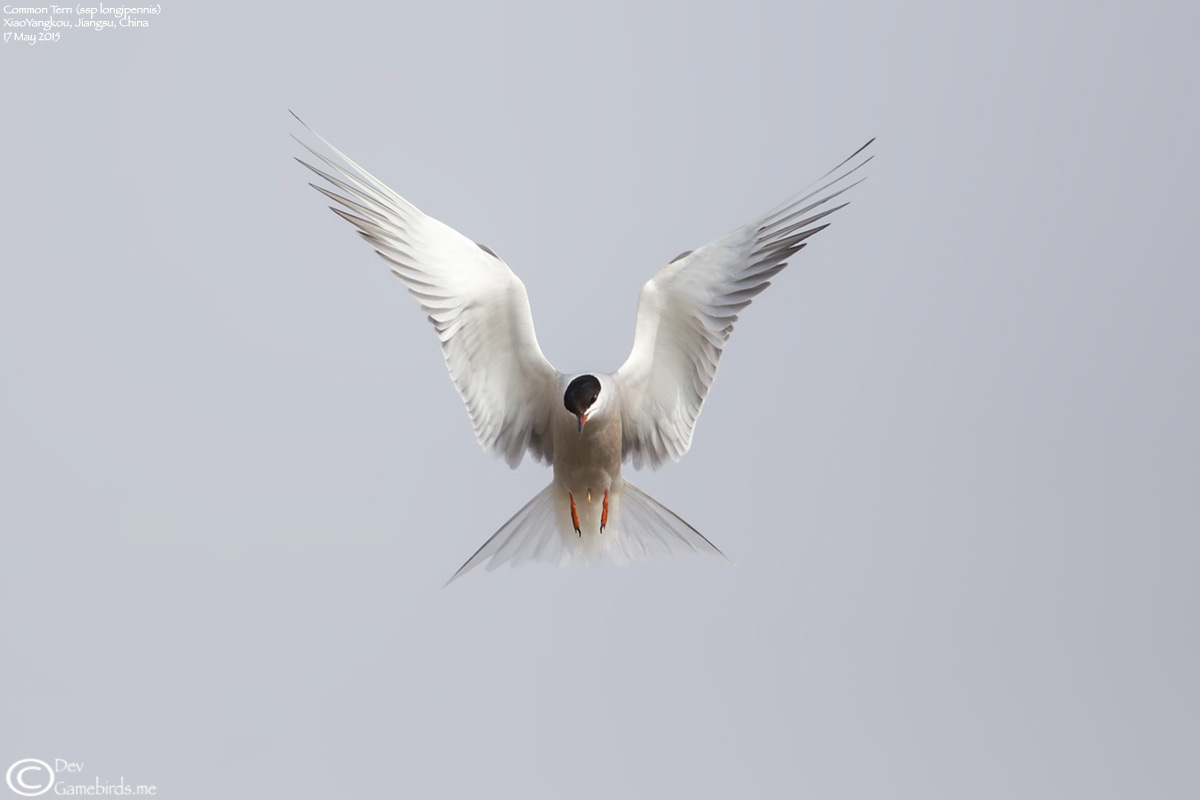
It was two weeks since the “Spooner” moment in Yangkou. I returned to Yangkou again on May 24th with my good old pal, Roger. Roger is a fantastic photographer and a great company.He has travelled extensively to every remote corner of China and introduced me to lot of good birds and locations over the last year. I could not refuse his request to try for spooner and to look for the possible “Summer Breeders” in Yangkou. We did a lazy start in the morning and opted to try the new road “G40” which goes over Chongming instead of the traditional “G15” which goes over Nantong. The “G40” was very vacant with no vehicular traffic, a very pleasure drive except for the hefty toll.
We approached Yangkou from the southeast and did a brief stop near “Yaowang Harbour”, Indian Cuckoo was heard right immediately after we stepped out. The tide has just moved out and shorebirds have scattered. We picked up the usuals instantly but not so many birds, two weeks of time is a great deal during Spring. We did our regular routine of scouting the old places which we did together a year back and my “potential locations” from two weeks back. It felt like “July” as we did see very few things. We stopped at the temple woods, just to find some wealthy locals arrived in their “Range Rover” and were camping in the temple woods. Fortunately, the passerine push was already over otherwise a “Siberian Rubythroat” or a “Japanese Yellow Bunting” will be choking in that stew the lady was cooking. We quickly checked into the “Dafeng Hotel” which will be our crash pad for the night. The ladies at the reception were amused to see us, even they knew that the birding season is over. Our first hope of the summer came from a lonely “Amur Falcon” hunting in a very odd habitat. It was hovering above a buiding in the chemical industry park.
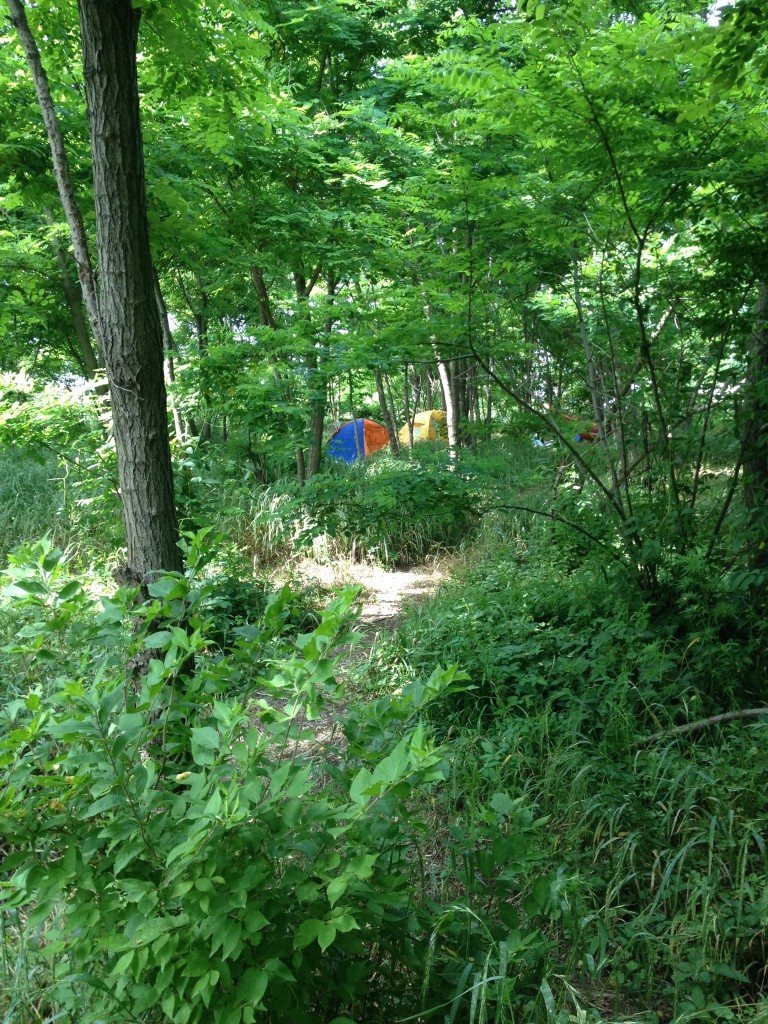
Camp site in the temple woods
The day was moving as a snail with no bird activityexcept for the Saunders’s Gull and Common Tern which were flying across the sea wall . I have heard several news over the years about the Saunder’s Gull breed in Yangkou but i have never found their nesting Colony in the past year. We then drove inland for the fish ponds and stumbled on the huge nesting colony. Eureka!!! Thousands should be the real no’s used here, as the nesting colony consisted of thousands of Saunder’s Gull, Common Tern (ssp longipennis) and few Little Terns.
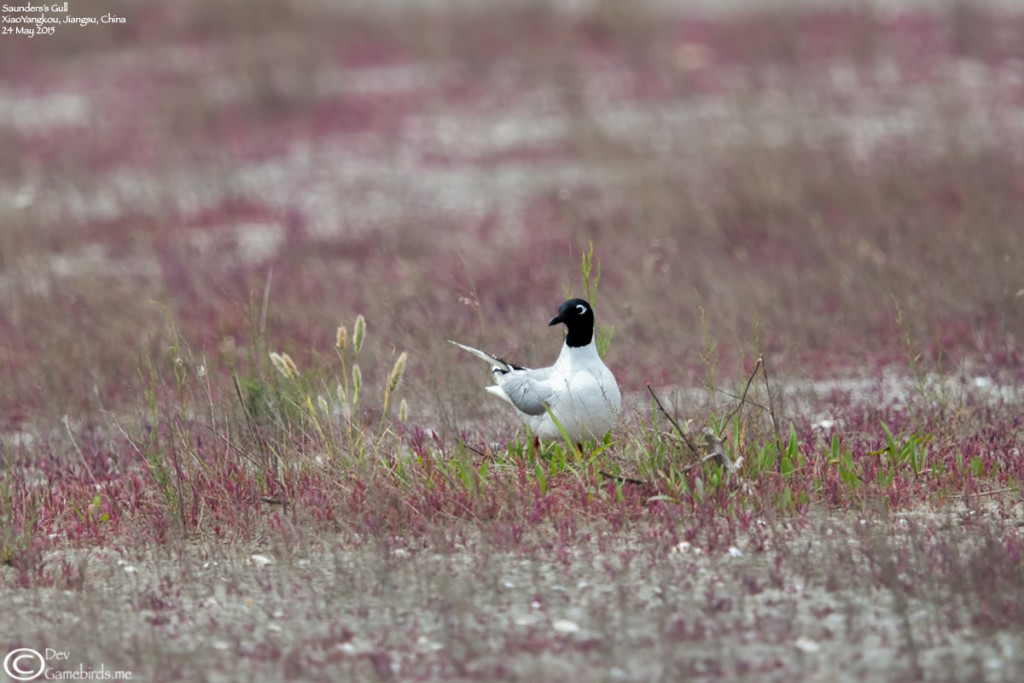
Saunders Gull on nest
We spent next several hours watching the superb courting display of the Common Tern. It was a terrific experience to witness the behaviour of the Terns. It was total chaos in the nesting Colony but also some superb actions like fish presenting, mating, dancing.
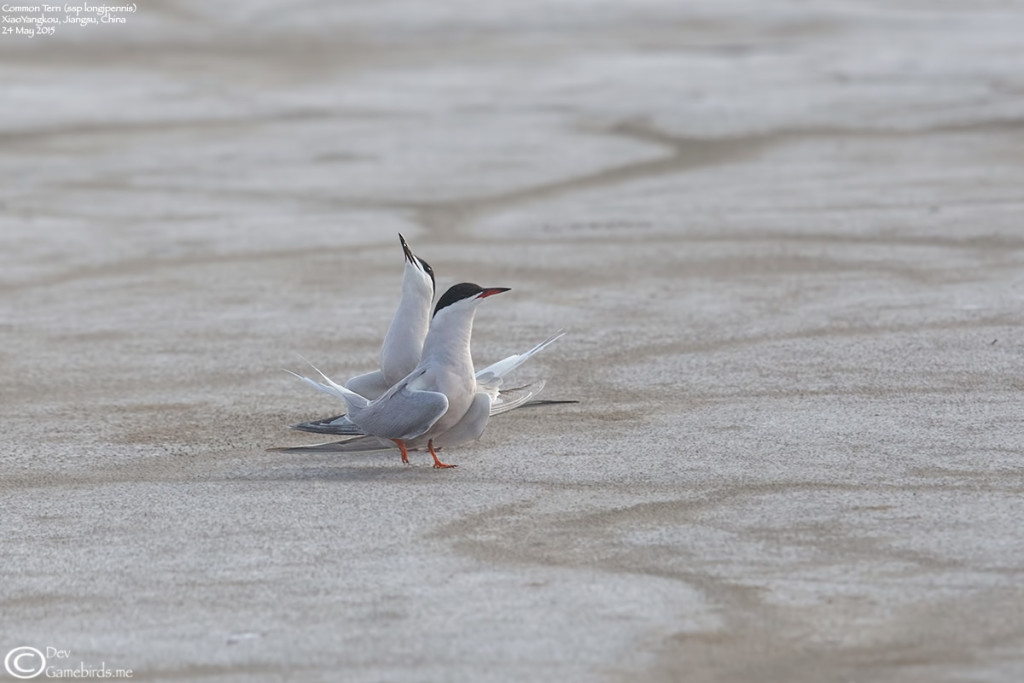
Show your moves! Dance, Dance Baby!
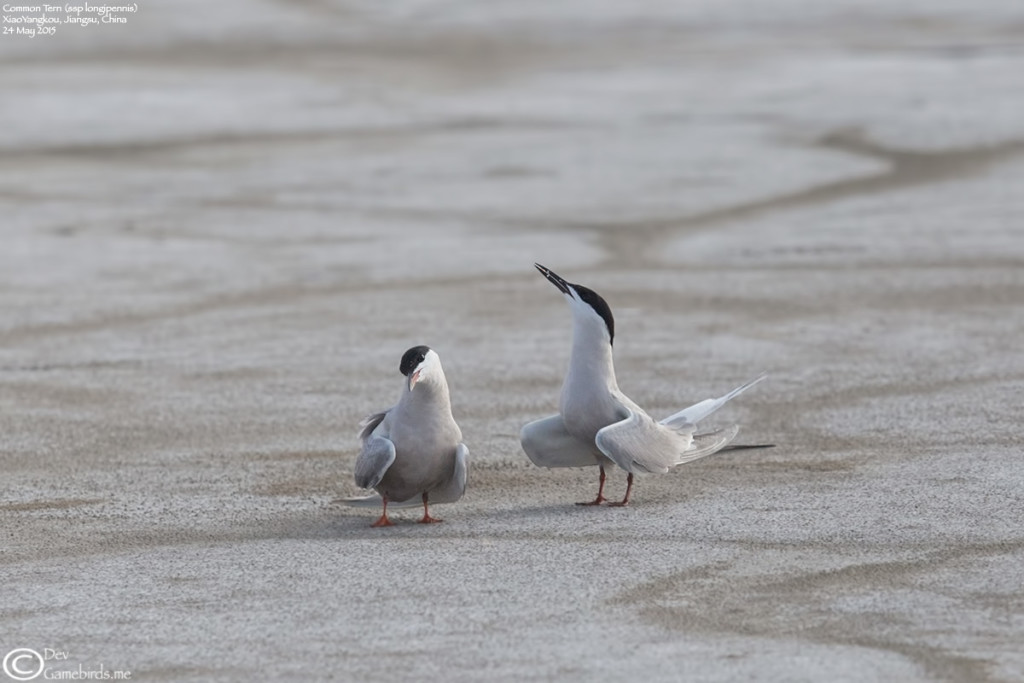
Fish presenting, female finished the fish though
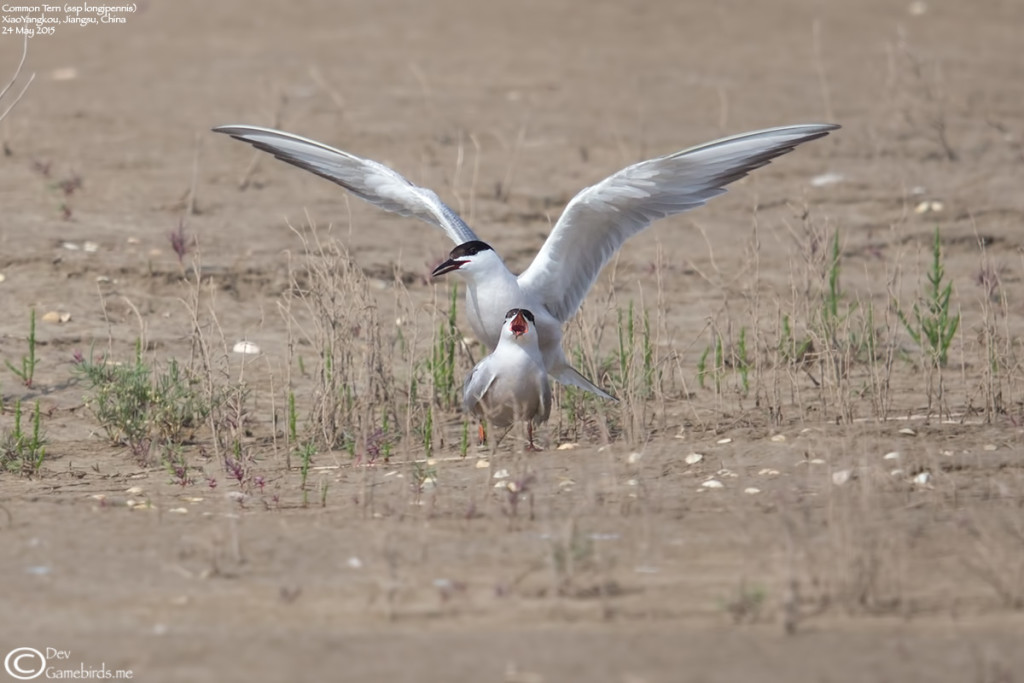
Act of excitment
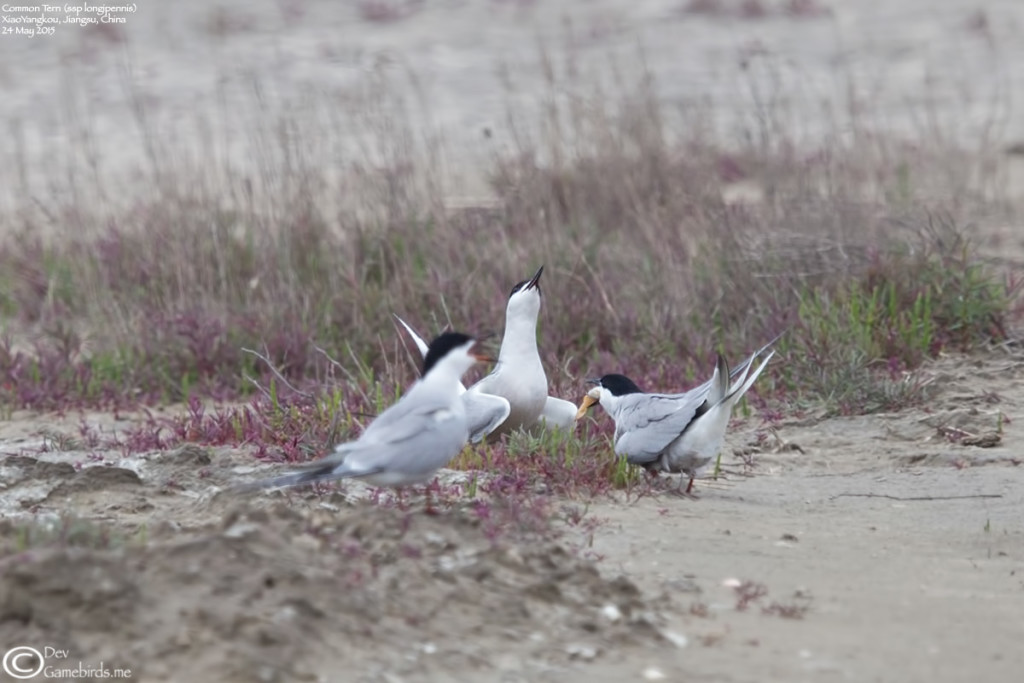
This guy impressed his gal with such a huge fish
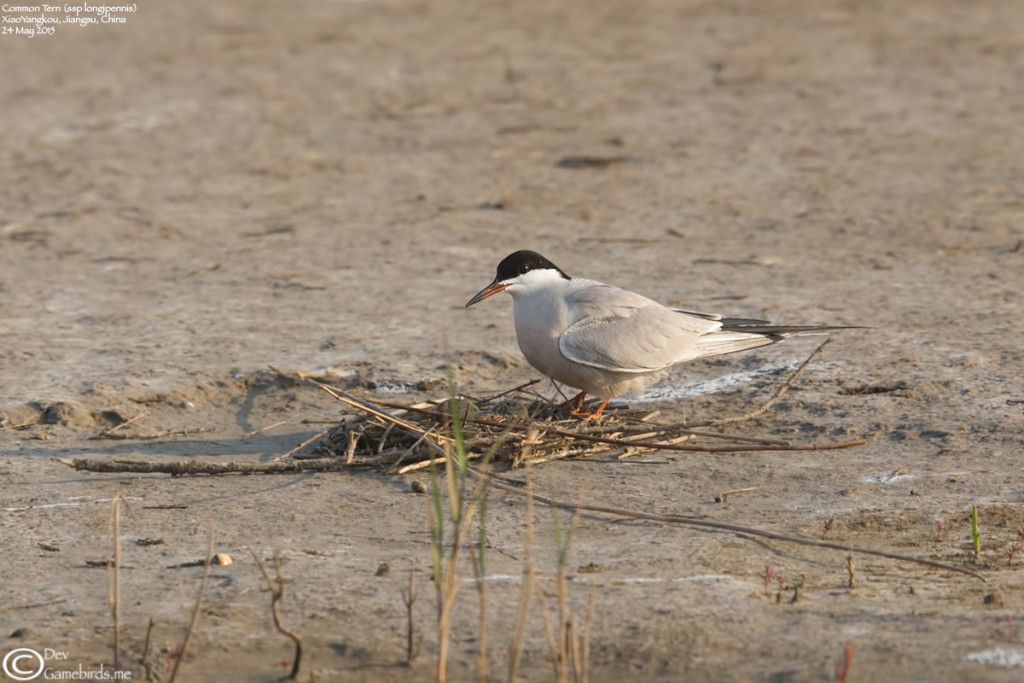
more babies enroute
We also, found an Eurasian Oystercatcher incubating the eggs. Brazil states Oystercatcher as “Scarce Breeder”. Last year, along with Roger, we found Oystercatcher showing broken wing display when a chinese tog was driving around photographing it. We suspected it might have a nest around but we dint see any. This time we found the nest, it was just on the bare ground with a tarpaulin sheet used for the land reclamation purpose with few small twigs.
While, the Common Tern’s was whole mess of twigs.
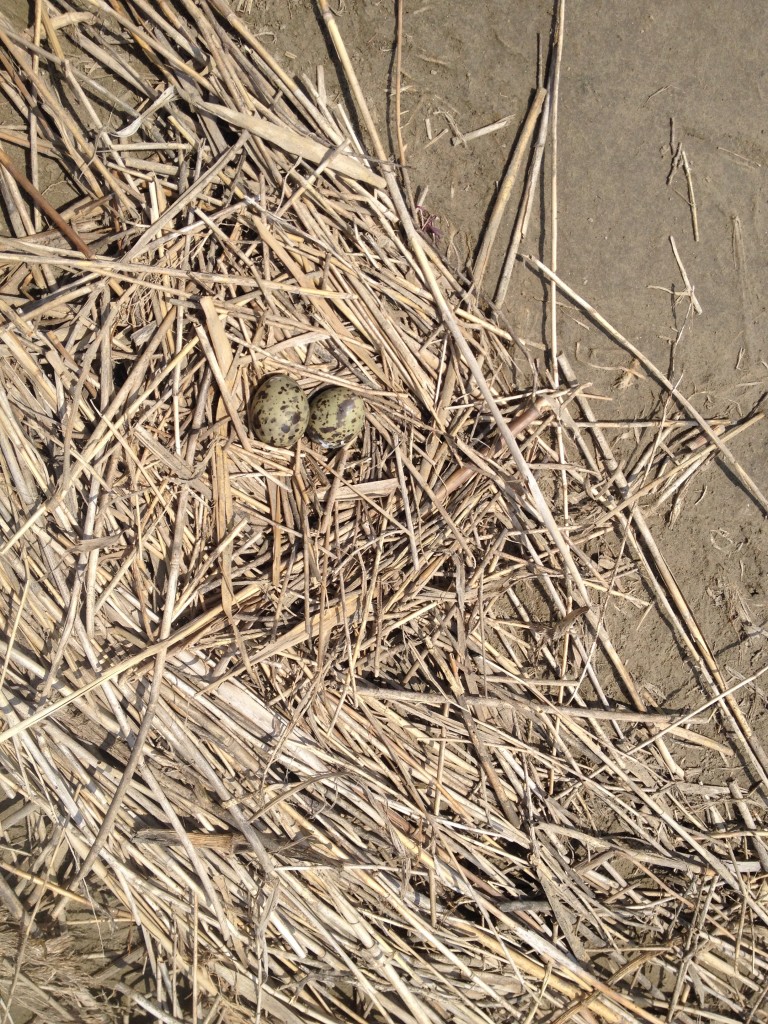
Common Tern’s nest
The inland pool also held few hundred Ruddy Turnstones. It looked like they have totally abandoned the mudflats and preferred the pools instead.
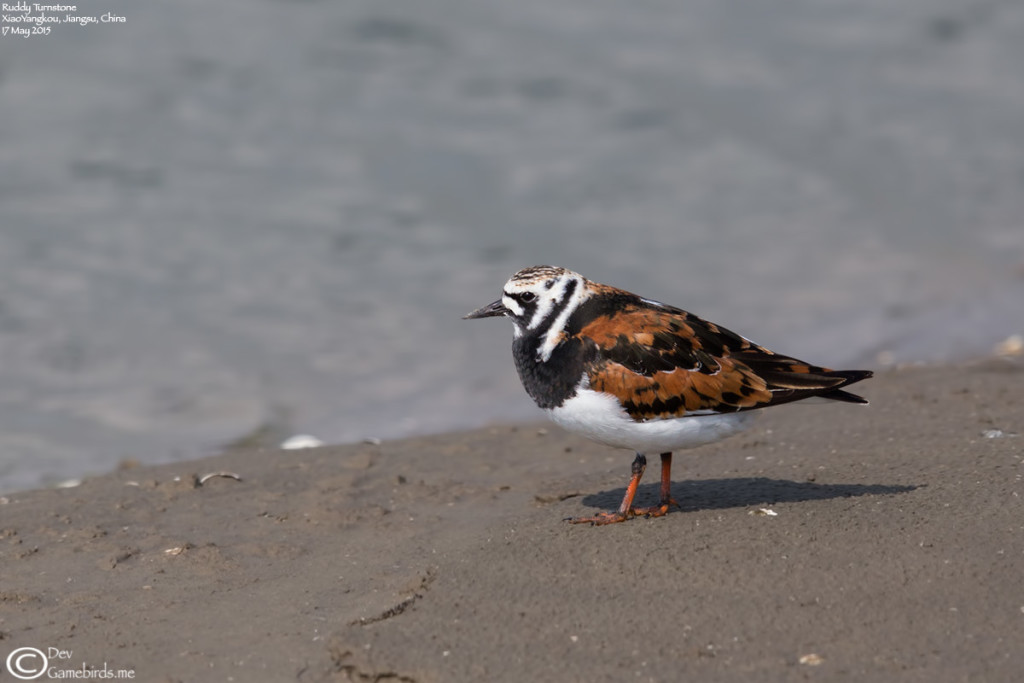
Lovely colors
I had several speak of the devil moments while birding, whenever i complain about not finding the bird, they appear outta nowhere. We had a sudden outbreak of “Oriental Prantincoles” doing their Swallow like insect hawking.
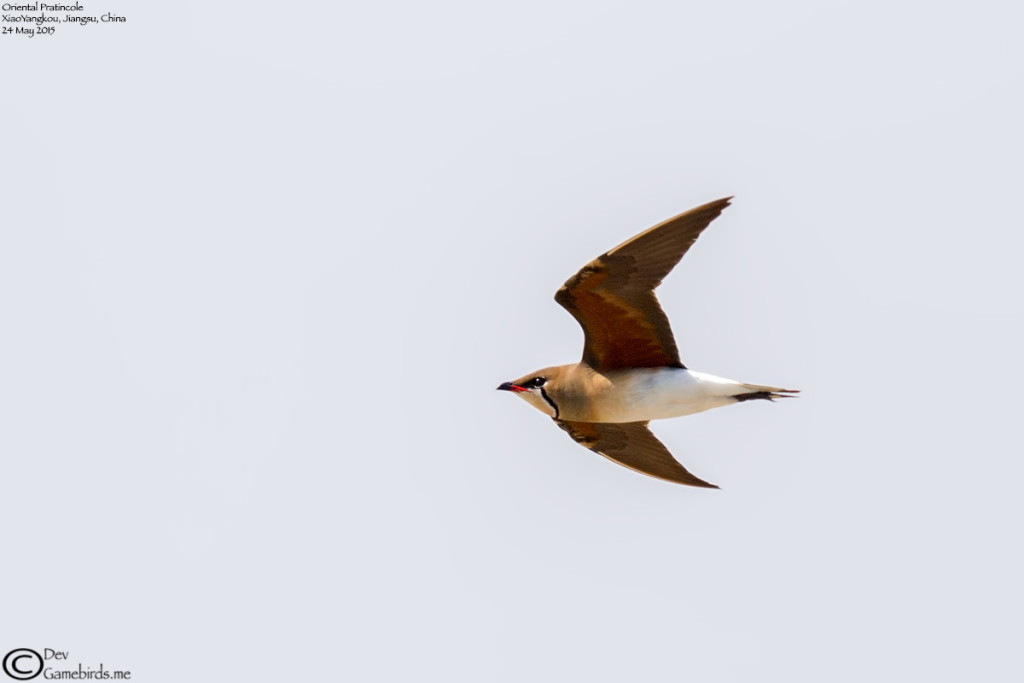
Swallow?
One bird which is definitely affected by the rapid industrialization of Yangkou is Grey-headed Lapwing, the bird which was once abundant and local breeder are very scarce to see these days. Ofcourse, with that odour and lack of grounds for breeding n feeding, they would have decided to move on. Here is a mother of three chicks.
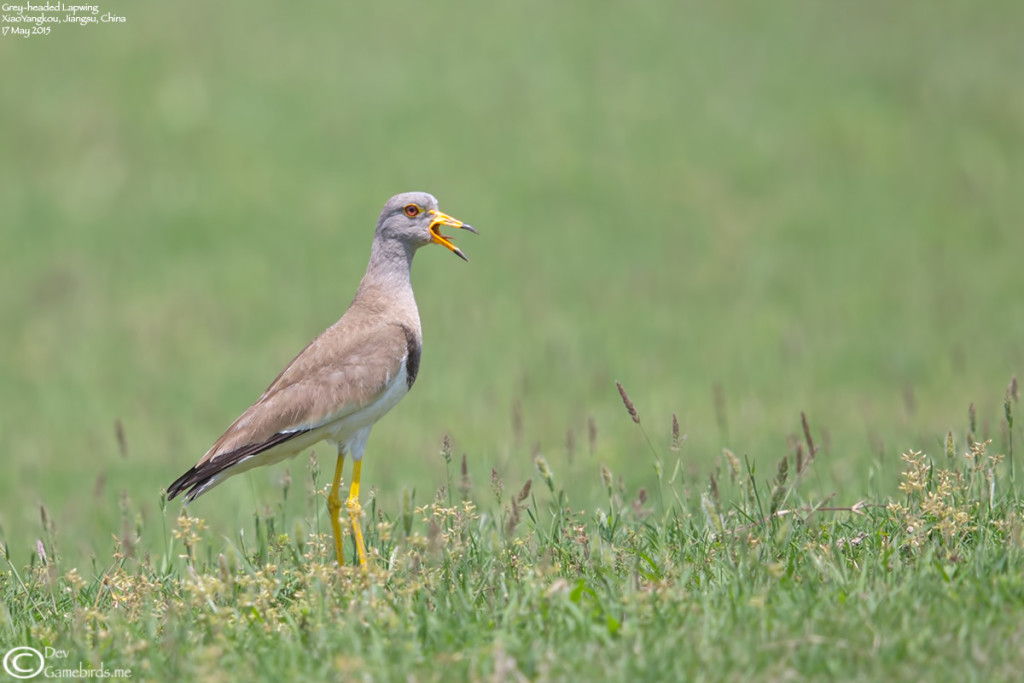
A very protective mother
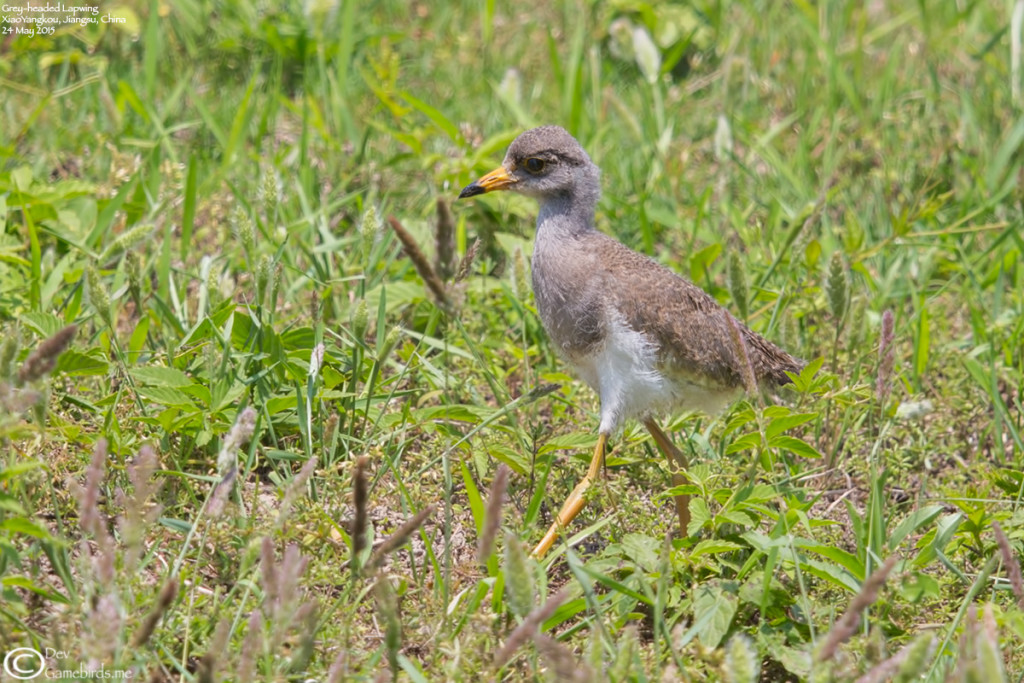
Junior Lapwing
Some more miscellenous shots :
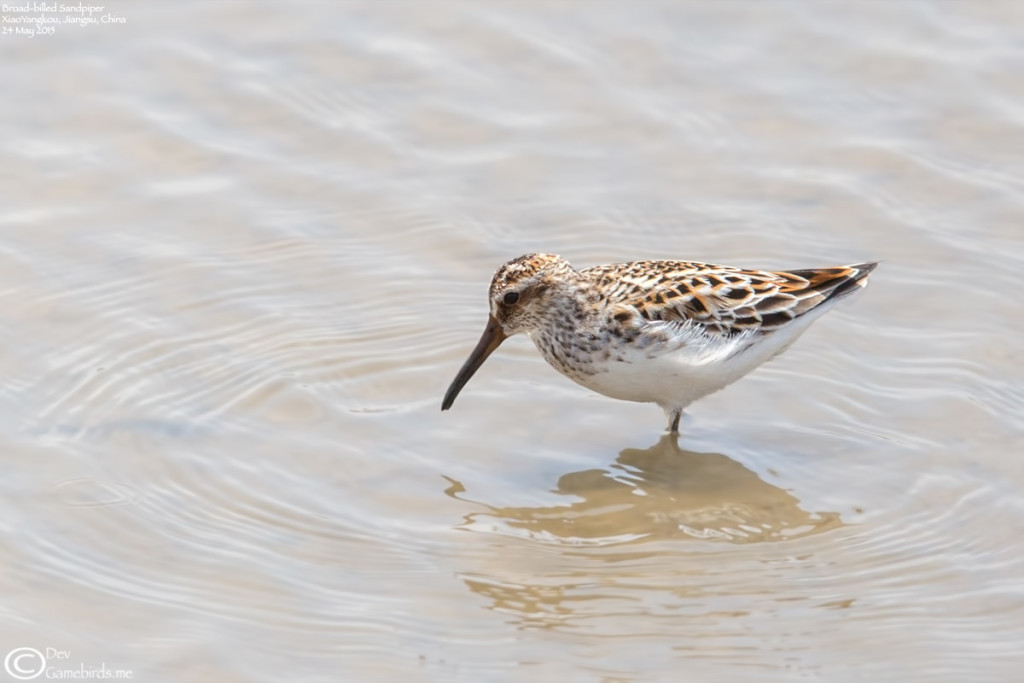
Broad-billed Sandpiper
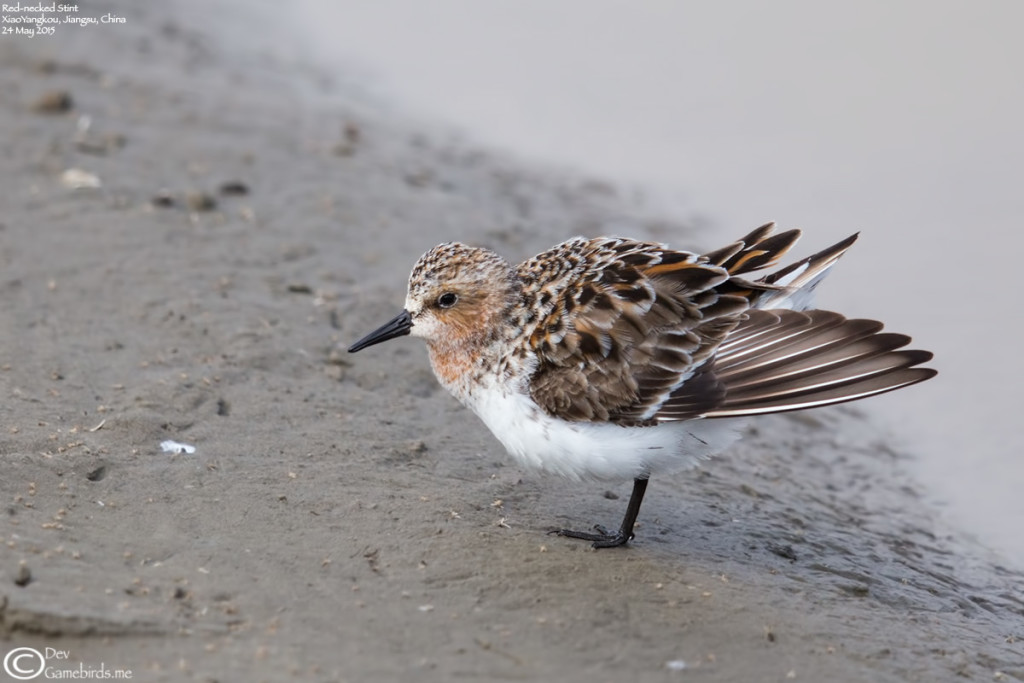
Red-necked Stint
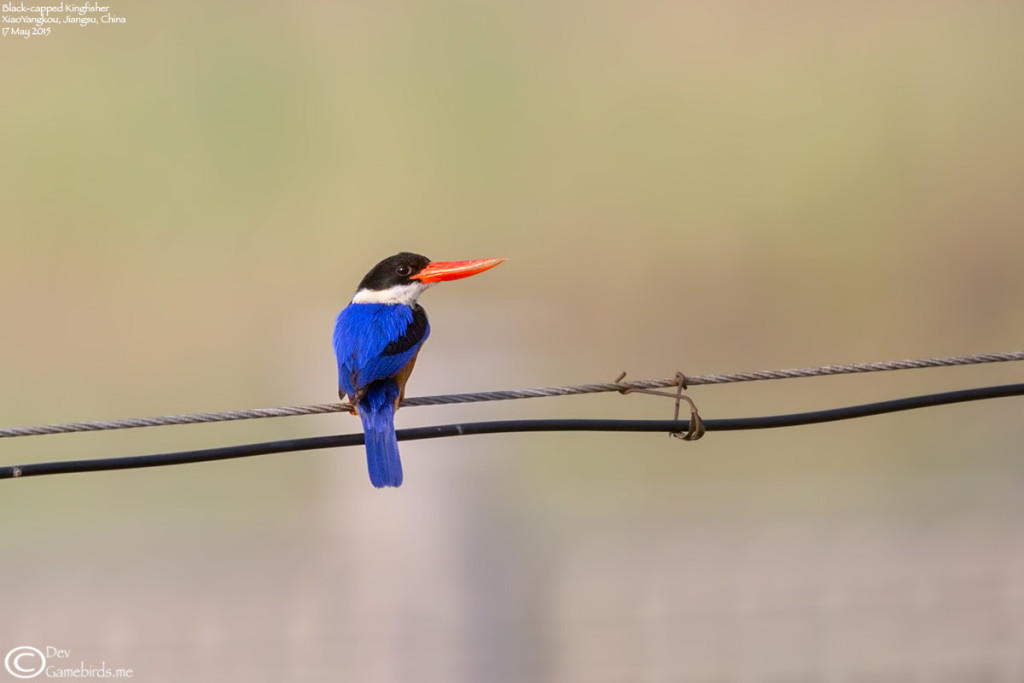
The capped Crusader
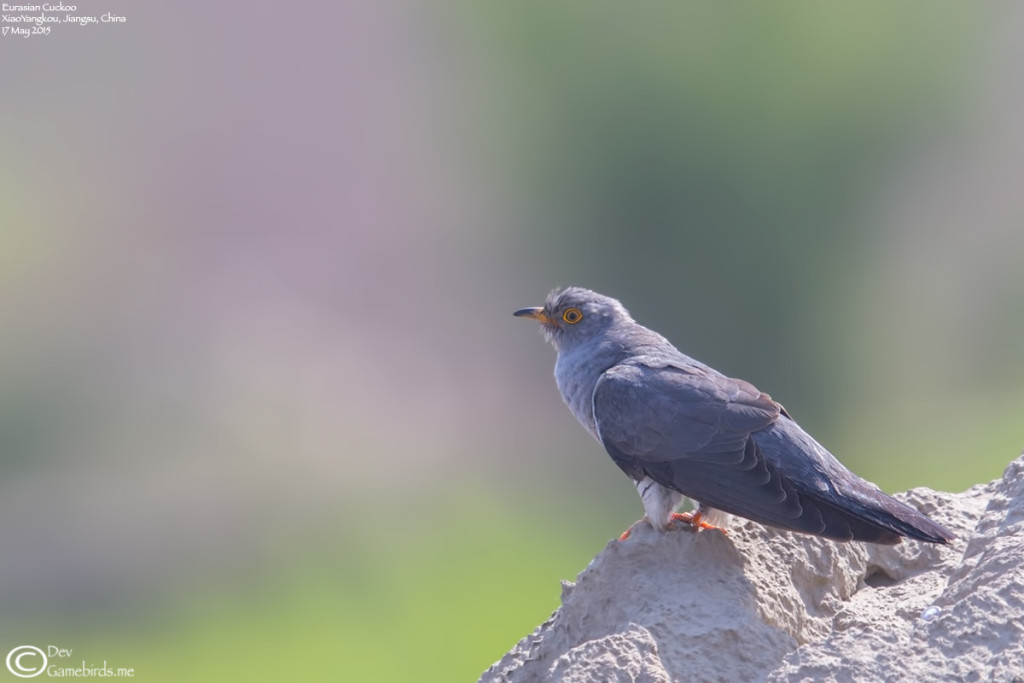
Did you find the right nest yet?
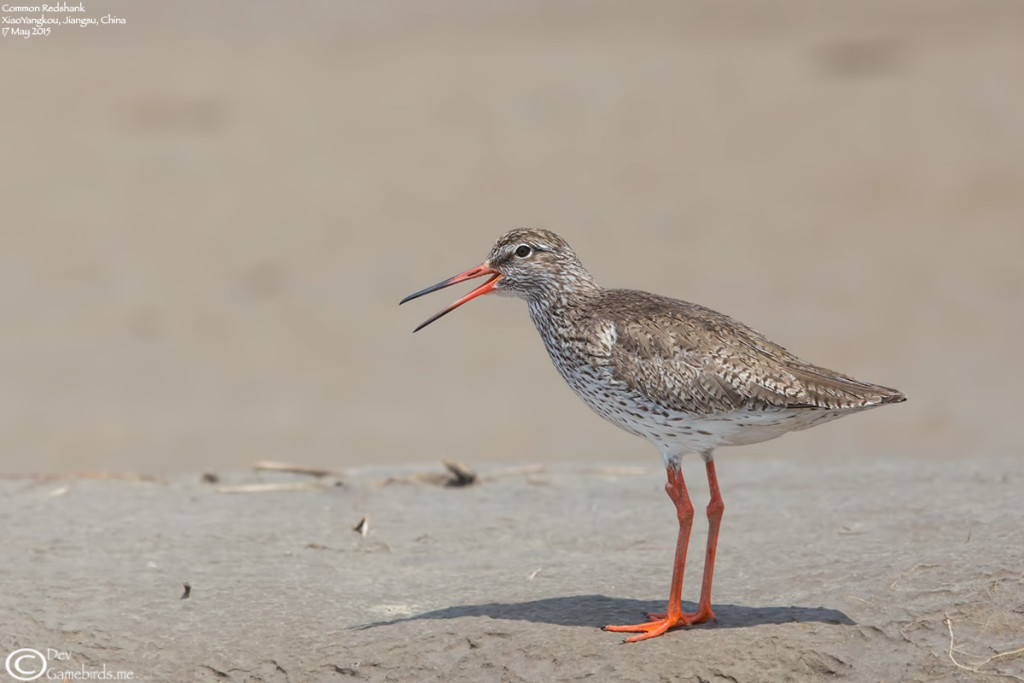
Something odd about its leg
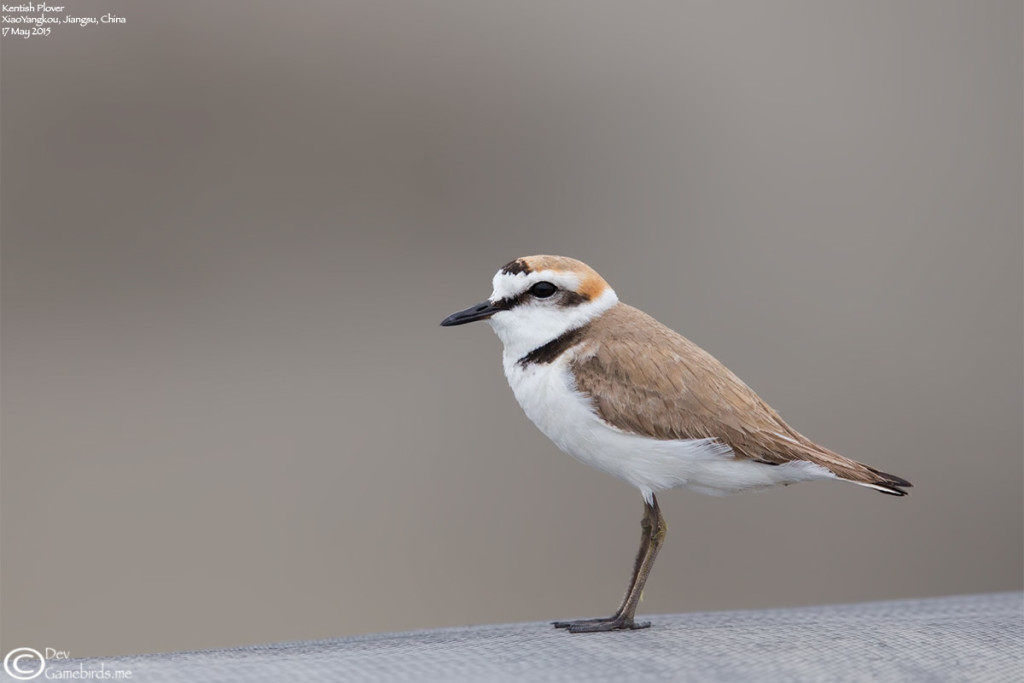
Last but not least
Species List :
| Common Pheasant |
| Little Grebe |
| Yellow Bittern |
| Grey Heron |
| Intermediate Egret |
| Little Egret |
| Eastern Cattle Egret |
| Chinese Pond Heron |
| Black-crowned Night Heron |
| Common Moorhen |
| Eurasian Coot |
| Black-winged Stilt |
| Eurasian Oystercatcher |
| Grey Plover |
| Grey-headed Lapwing |
| Lesser Sand Plover |
| Kentish Plover |
| Little Ringed Plover |
| Terek Sandpiper |
| Common Sandpiper |
| Common Greenshank |
| Common Redshank |
| Far Eastern Curlew |
| Eurasian Curlew |
| Bar-tailed Godwit |
| Ruddy Turnstone |
| Broad-billed Sandpiper |
| Sharp-tailed Sandpiper |
| Red-necked Stint |
| Sanderling |
| Oriental Pratincole |
| Saunders’s Gull |
| Little Tern |
| Common Tern |
| Red Turtle Dove |
| Spotted Dove |
| Common Cuckoo |
| Common Kingfisher |
| Black-capped Kingfisher |
| Amur Falcon |
| Brown Shrike |
| Long-tailed Shrike |
| Black Drongo |
| Japanese Paradise Flycatcher |
| Azure-winged Magpie |
| Red-billed Blue Magpie |
| Eurasian Magpie |
| Eurasian Skylark |
| Oriental Skylark |
| Barn Swallow |
| Great Tit |
| Light-vented Bulbul |
| Manchurian Bush Warbler |
| Arctic/Kamchatka Leaf/Japanese Leaf Warbler |
| Black-browed Reed Warbler |
| Oriental Reed Warbler |
| Zitting Cisticola |
| Plain Prinia |
| Reed Parrotbill |
| Vinous-throated Parrotbill |
| Japanese White-eye |
| Asian Brown Flycatcher |
| Grey-streaked Flycatcher |
| Crested Myna |
| Black-collared Starling |
| Red-billed Starling |
| White-cheeked Starling |
| Eastern Yellow Wagtail |
| White Wagtail |
| Chinese Grosbeak |
| Eurasian Tree Sparrow |
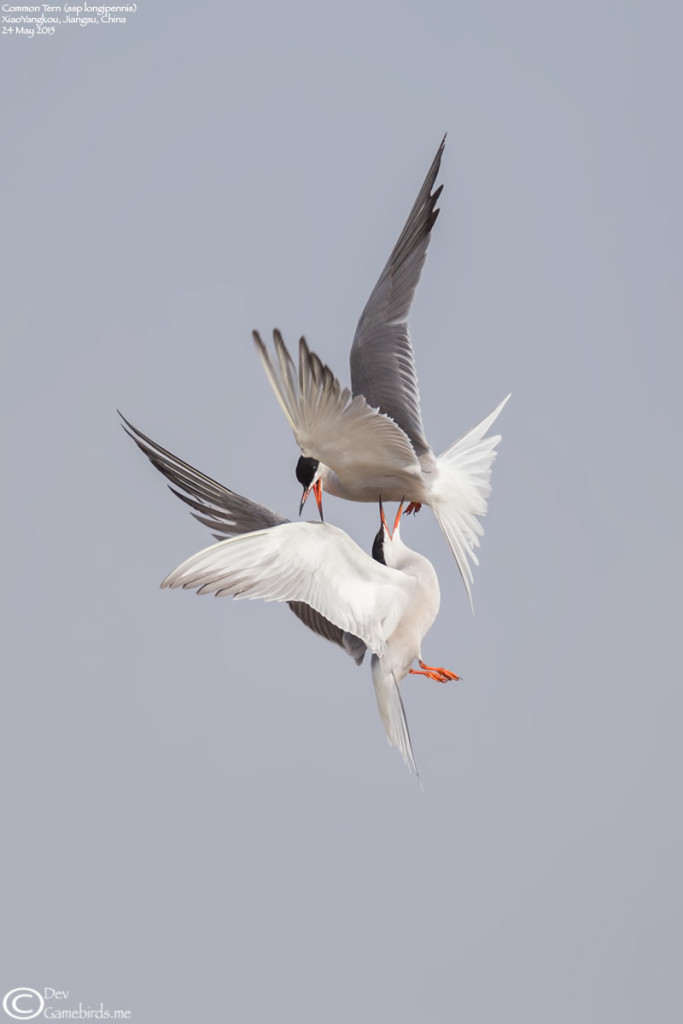
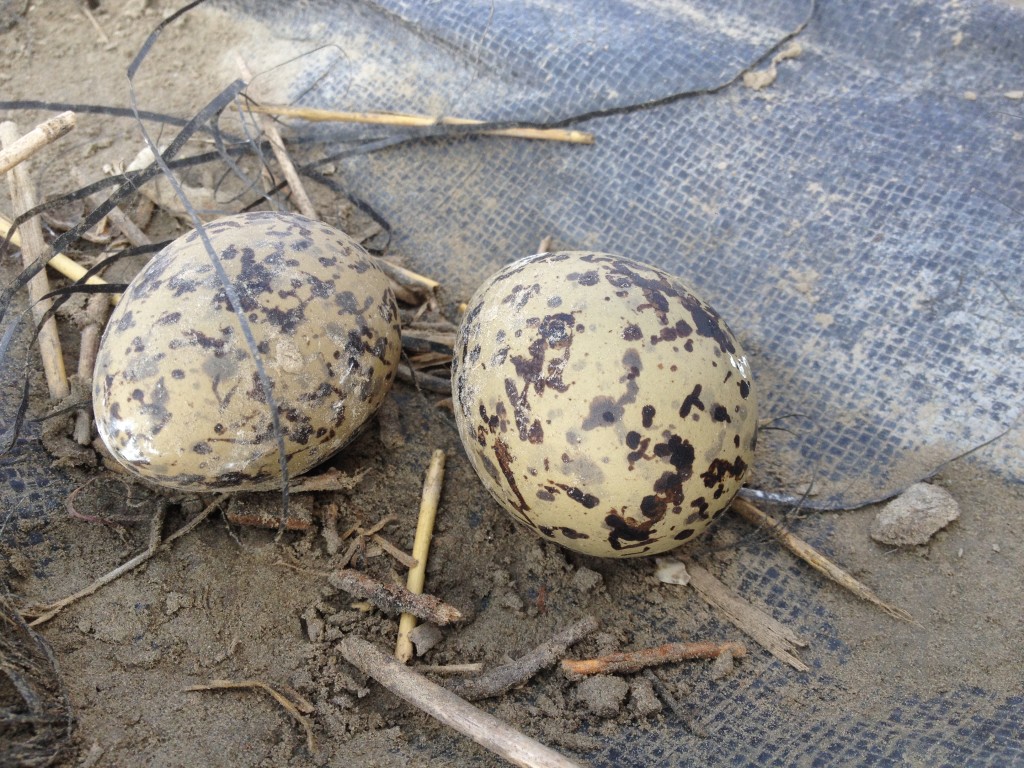
Recent Comments